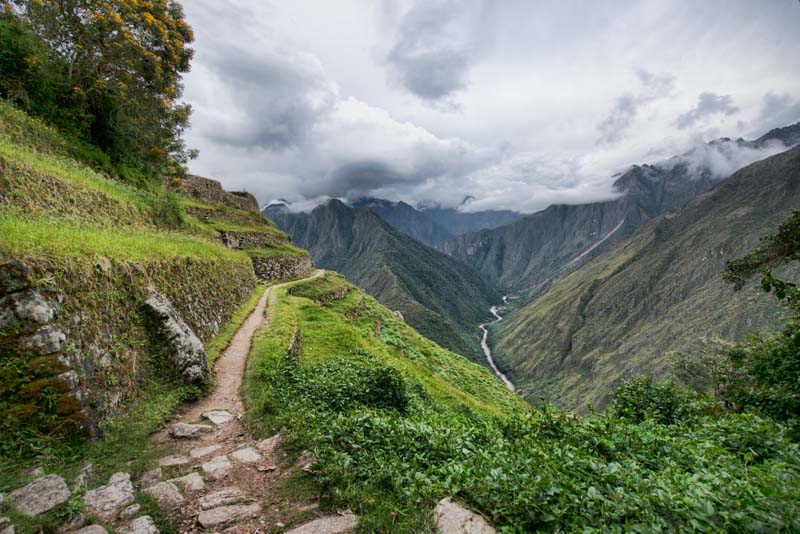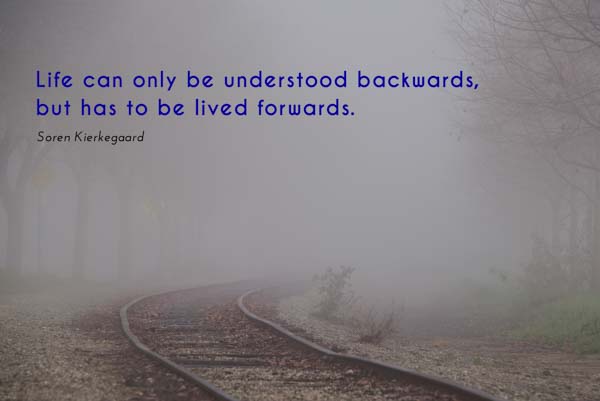You live the good life on the Inca Trail.
For food, expect three gourmet meals a day; served on preset tables in a weatherproof tent.
Worried about camping? Don’t be!
Your tents and campsite will be set up while you’re still hiking and ready for you upon arrival.
Wondering how to carry all your stuff?
Let the porters take care of that while you focus on getting past Dead Woman’s Pass and the Gringo Killer.
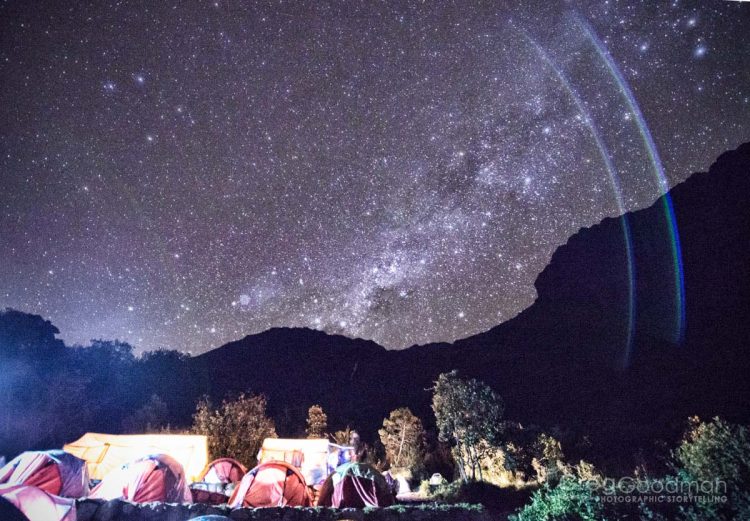
Sherpas … Porters … Chaskies
On the Inca Trail, life as you know it would not exist without the tireless efforts of chuskies (the Quechea name for porter).
With their backs arched at a permanent 40 degree angle and sweat pouring off their faces, each chuskie tirelessly lugs 55 pounds of equipment across the Inca Trail: sometimes in flip flops.
Included in those pounds are your tents, food, water, sleeping bags and other accessories that make the trek a 5 star experience.
Most amazing is that these men will consistently lap you on the Inca Trail; chugging on at epic speeds to ensure everything is ready and waiting when you arrive at the next stop.
So, be sure to thank your chuskies every time they pass you on the Inca Trail: which will happen constantly, regardless of how fast you’re going.
Also, be sure to tip them well.
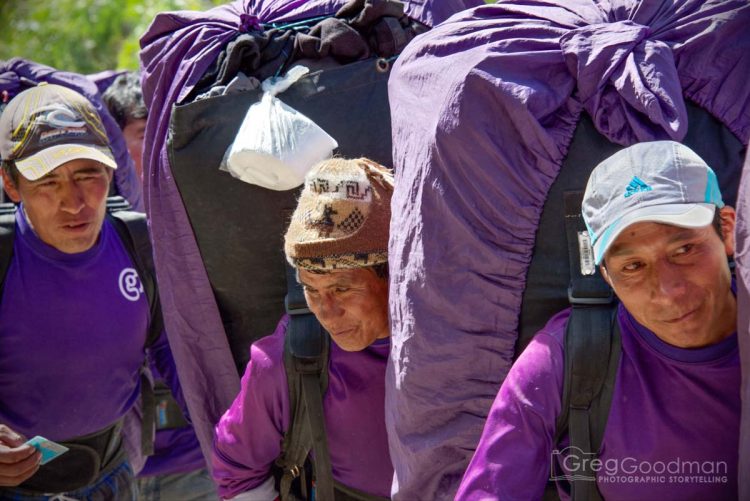
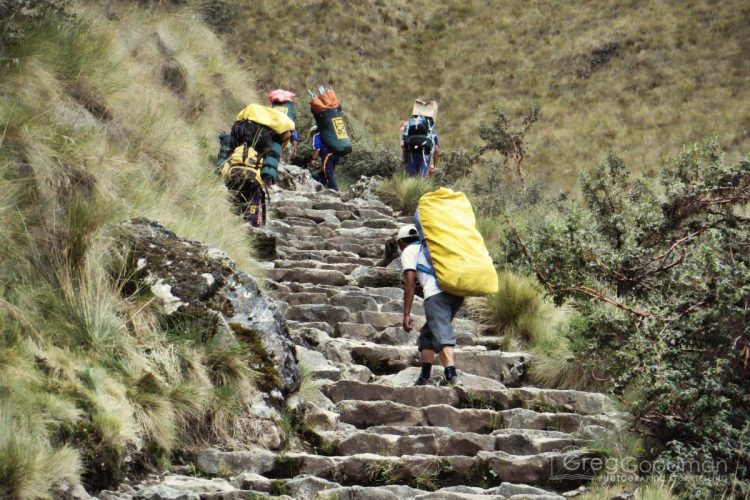
A 5-Star Campsite
Considering upwards of 400 people are sleeping alongside you each night, camping on Peru’s Inca Trail is an incredibly tranquil experience.
Perhaps it has something to do with everyone’s sheer exhaustion.
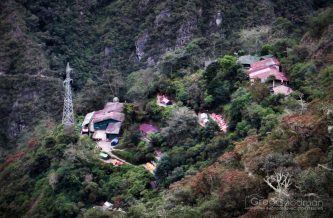
After an intense day of hiking, your average evening looks something like this…
- Arrive at the campsite to find your tent set up and your bag waiting.
- Find the willpower to do a little stretching.
- Relax with a hot drink and popcorn in your tent
- Feast on a gourmet dinner.
- Collapse onto a thin mattress pad and snuggle up in your mummy sleeping bag.
The next morning, you awake to voices outside your tent offering, “coca tea? Hot chocolate? Coffee?”
Then, breakfast.
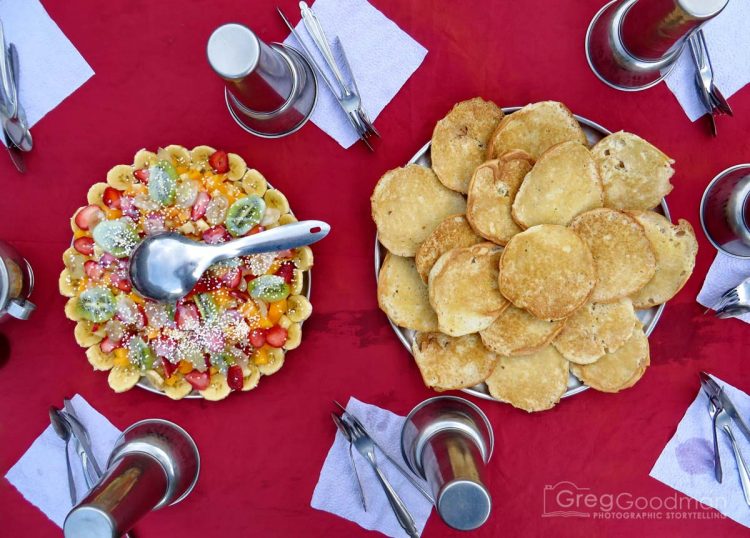
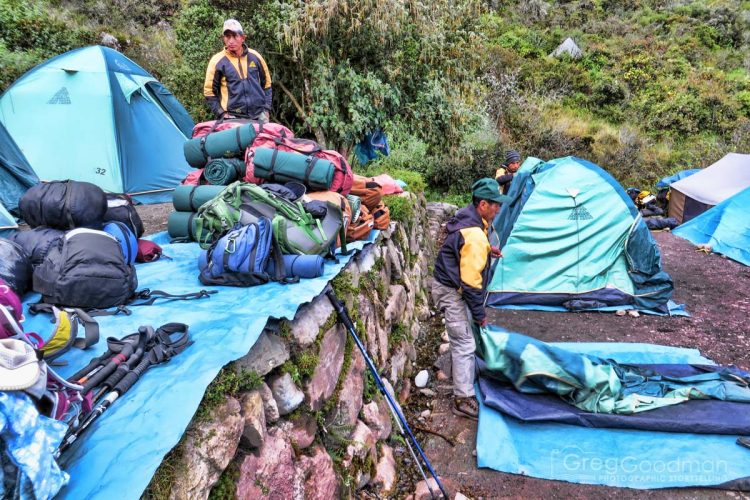
Shopping on the Inca Trail
Need water along the way?
What about a snack, soda, hat, poncho, beer, hankercheif, roll of toilet paper or coca leaves?
Whatever it may be, the first two days are filled with locals setting up makeshift markets in front of their homes or at your campsite.
Just keep in mind, the further you are on the trail, the more expensive everything is.
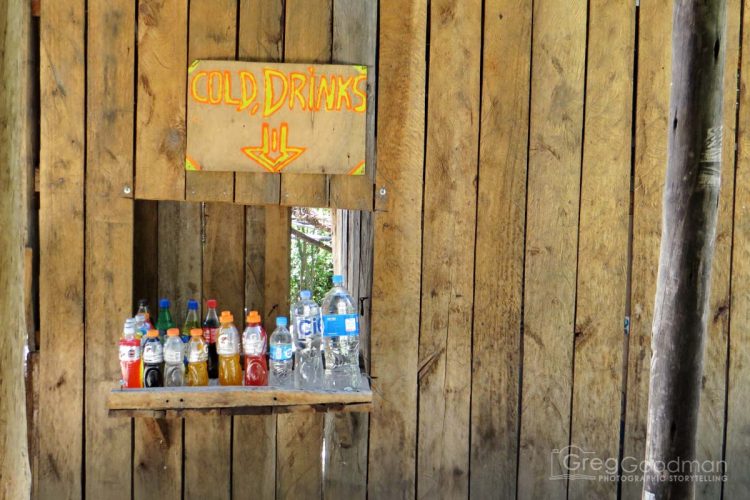
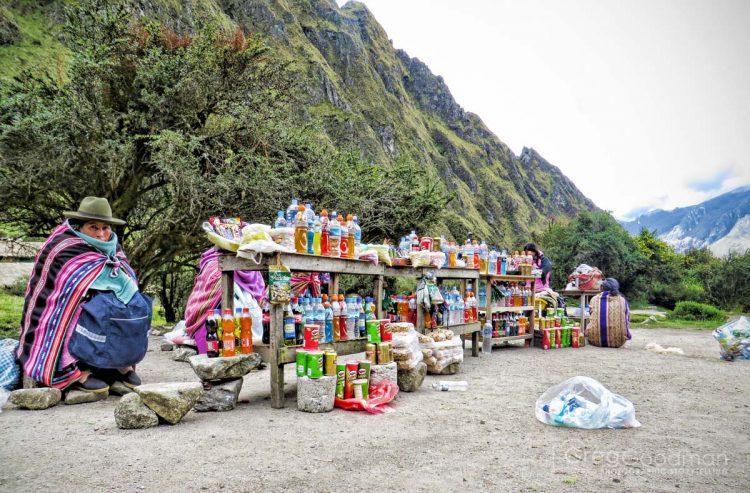
PeruRail: The Cheater’s Route to Machu Picchu
When you begin the trek, railroad tracks and passing PeruRail trains are visible from across the Urubamba River.
Your guide, Freddy, jokes that its passengers are cheaters: making the 4 day journey to Machu Picchu in just 1.5 hours.
He also jokes that they probably look at us hiking and think we’re completely crazy!
Everyone is probably right.
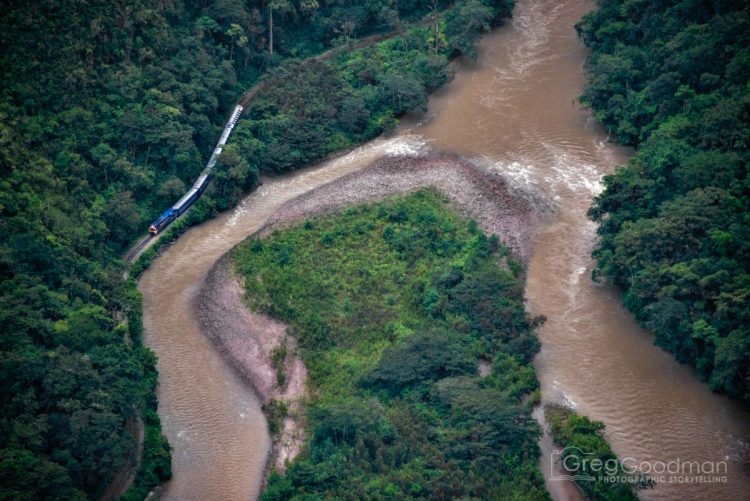
Pachamama and Coca Ceremonies
Throughout the trek, Freddy offers reminders to respect Pachamama (Mother Earth).
Without her solid ground beneath your footsteps, following the ancient footsteps of the Incan and Andean people would not be possible.
Rocks & Coca
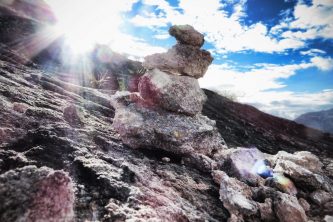
On the second morning, Freddy encourages everyone to collect a special stone from somewhere on the trail.
Upon reaching the peak of Dead Woman’s Pass, you will take that stone – along with three coca leaves – and form a circle to give thanks to Pachamama.
Then, with a pure intention in your heart, take the leaves and stone and add them to a nearby offering pile.
This is said to bring good luck and blessings on your journey.
Money & Coca
On the last night, Freddy invites the chuskies and chefs to join us for a beautiful ceremony of thanks.
In addition to presenting each chuskie a sizeable tip, we offer individual words of gratitude and a hearty handshake to each man.
Additionally, we present a big bag of coca leaves to the group: a traditional offering of friendship in the Andes.
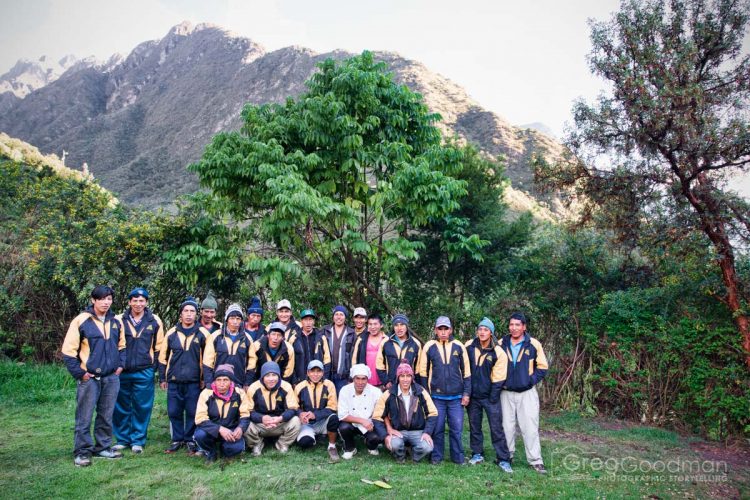
My Life Experience on the Inca Trail
From April 18-21, 2014, I hiked the Inca Trail along with 15 other trekkers (including my wife, Carrie), 22 chuskies and 2 guides.
These are a few of my experiences:
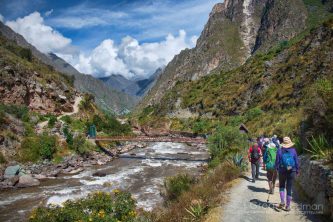
One of the biggest dangers of the Inca Trail is being stuck behind a big group of people and not being able to move a natural speed: it really locks up the muscles.
Another danger lurks when look down to avoid a puddle; that’s when you wind up with a tree branch in the forehead and rainwater dripping down your face.
Because of my desire to photograph everything in Peru, I often found myself at the back of the line.
Sometimes, the guides would just tell me and Carrie to take our time and catch up; because they knew we would be ok. Still, if something ever happened to us, it would take a while for someone to realize.
The food that our chef prepared was better than most restaurants I’ve eaten in in Peru.
After walking down the Gringo Killer 2000+ steps on the 3rd day, I could barely walk. Thank goodness for Carrie’s amazing Thai massage skills.
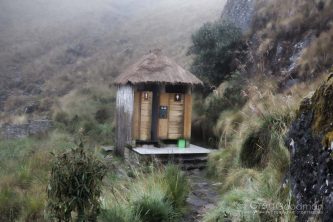
I heard a lot of people discussing the poor condition of the toilets along the Inca Trail.
However, I would say they are no better or worse than any other squatty potty in the world: just a little muddier after 400 people traipse through them in their hiking boots each day.
If you take the hike, I highly recommend Peru Treks. And book your ticket far in advance: the Inca Trail sells out fast.
My one complaint about the trek is how little time you actually spend exploring Machu Picchu on your own. Fortunately, an easy solution is to spend an extra night in Aguas Calliente and return on your own the next morning at sunrise.
If you’re not acclimated to the altitude, be ready to chew a lot of coca leaves.
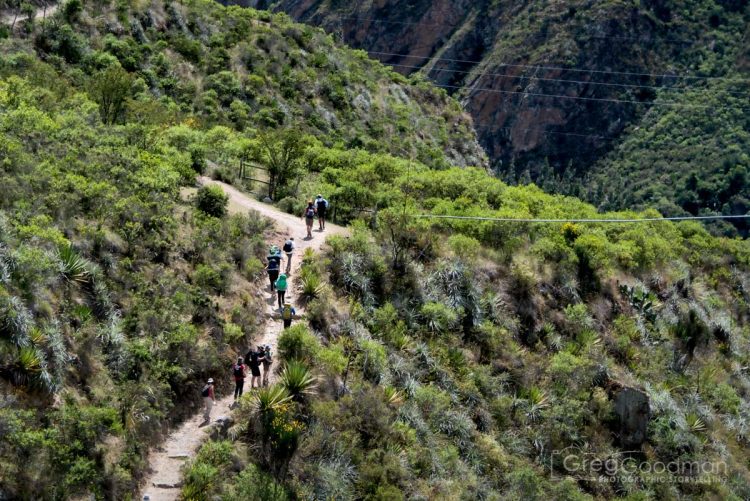
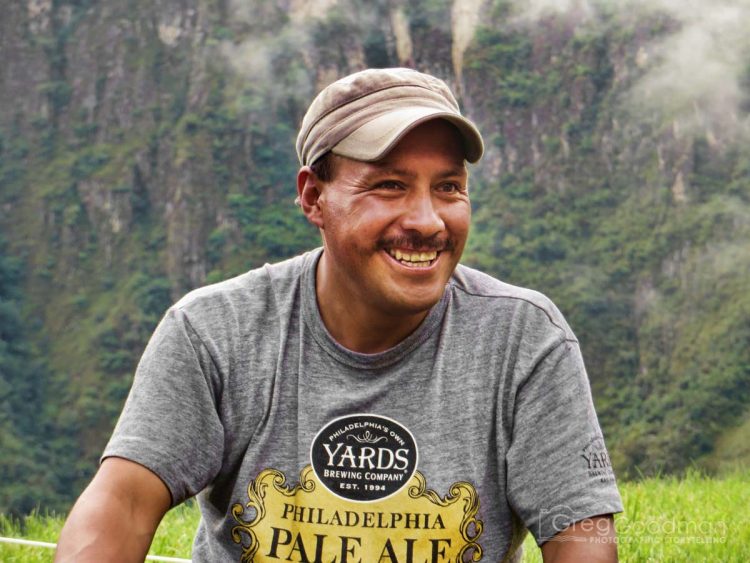
Have you ever hiked the Inca Trail?
Or, after reading this, would you?
EXPLORE SOMEWHERE NEW
BUY A PRINT
All photos on this site are available as limited edition fine art photographic prints. Please get in touch for sizes and rates.



